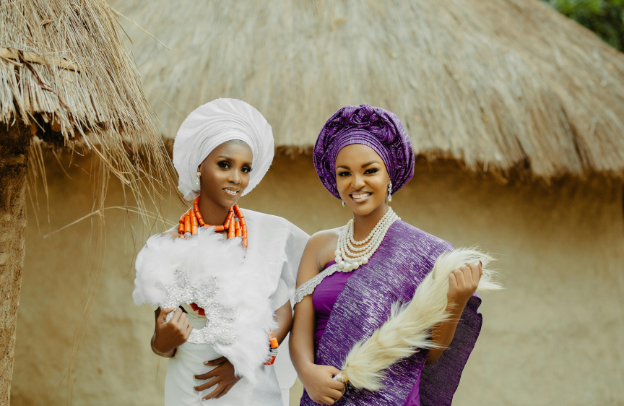The Role of Group Tours in Strengthening Global Diaspora Networks and Alliances

In the warm bustle of a spice market in Zanzibar, a group of travelers from Brazil, the United States, and Trinidad & Tobago huddle around a local historian. They are not tourists in the traditional sense; they are participants in a diasporic journey designed not just for exploration, but for reconnection. These travelers are retracing fragmented histories, reclaiming ancestral ties, and building new alliances.
Learn How to Leverage Your Story through our Story To Asset Framework.
Group tours, once a vehicle for casual sightseeing, are rapidly transforming into powerful tools for forging global diaspora networks, cultural, economic, and political bridges grounded in shared memory and purpose.
This evolution is not accidental. It reflects a broader awakening across African diaspora communities, one shaped by digital connectivity, cultural renaissance, and a thirst for homegoing experiences that offer more than symbolic returns.
From Ghana’s landmark Year of Return campaign in 2019 to emerging group travel collectives like Birthright AFRICA and the African Diaspora Alliance, curated group travel has emerged as a participatory platform for global collaboration and network-building.
See also How Group Tourism Facilitates Ongoing Collaboration and Growth within Diaspora Communities
Reimagining Travel as Diaspora Diplomacy
In traditional travel, the traveler observes; in group diaspora travel, the traveler co-creates. Today’s group tours are consciously curated to promote long-term engagement and collective growth, not just short-term cultural exposure. Participants are often introduced to local business owners, scholars, activists, and artists who become collaborators, not just hosts.
Take, for example, the Sankofa Journey organized by Sankofa Ventures, which brings together African diaspora professionals from around the world to engage in immersive experiences in Ghana. These journeys include historical site visits, community service projects, economic panels, and networking events with local entrepreneurs.
They become launching pads for transnational partnerships. According to a report from Afrotrak, nearly 40% of group travelers on curated diaspora trips report staying in touch with local collaborators after their return.
This interaction is vital, says Dr. Jemima Pierre, a scholar of African diaspora studies at UCLA. “Group travel becomes a form of grassroots diplomacy,” she explains. “It fosters the kind of people-to-people relationships that formal policy never can.”
In her research on diasporic return travel, Pierre highlights how intentional encounters during travel can solidify “a collective sense of belonging, responsibility, and futurism.”
Building Transnational Identity Through Shared Memory
Group travel also plays a pivotal role in reconstructing cultural memory. Many diaspora communities suffer from what historian Paul Gilroy has termed “postmemory trauma”, a disruption of historical continuity due to slavery, colonization, or forced migration. Through carefully curated travel programs, group tours become rituals of remembering.
Consider the multi-country heritage tours organized by The African Diaspora Alliance. Their programs include visits to memorials like the Cape Coast Castle in Ghana and the Maison des Esclaves in Senegal, accompanied by storytelling circles, music performances, and conversations with local elders.
These moments are not just emotional; they are therapeutic. They create what scholar Marianne Hirsch describes as “affiliative memory” a space where diasporans can connect to histories they didn’t directly experience but feel deeply responsible for.
In a 2021 UNESCO cultural travel report, memory-building was recognized as a critical function of heritage travel, especially when led by local communities. “When diaspora travelers engage in these rituals together, they create a shared archive,” says heritage travel expert Nana Adwoa Asare. “It’s not just personal healing, it’s cultural continuity.”
Economic Collaboration Beyond Borders
Another significant outcome of group diaspora tours is the facilitation of economic partnerships. Travelers are no longer satisfied with passive visits; they want to invest, co-create, and empower.
In East Africa, for example, the organization Diaspora RiseUp connects group travelers with cooperatives and social enterprises across Kenya and Tanzania. Participants attend business expos, agricultural demos, and technology incubator tours, planting seeds for future collaboration.
The economic potential is vast. According to the World Bank, remittances to sub-Saharan Africa reached $54 billion in 2023. But unlike remittances, group travel-driven partnerships often involve skill exchange, mentoring, and co-investment in long-term development projects. They provide a platform for wealth circulation and knowledge transfer that goes both ways.
In Ghana, the Diaspora Investment Desk, launched during the Year of Return, has seen a surge in interest from group travelers looking to launch or fund agribusiness, real estate, or educational ventures. “We came to find our roots, but we also found business partners,” said Erica Mensah, a Toronto-based consultant who returned to Ghana with a group of Caribbean and African American investors.
Political Solidarity in Motion
Group travel can also serve as a training ground for political consciousness and alliance-building. In recent years, African-descended communities across the globe have faced similar challenges: systemic racism, police brutality, climate injustice, and economic exclusion. By gathering in ancestral spaces, they build transnational solidarity networks that empower local movements.
In Brazil, the AfroResistance organization coordinates group delegations from the U.S. and Caribbean to Salvador, Bahia; a city rich with Afro-Brazilian cultural resistance. These tours often include community dialogues with favela leaders, Afro-Indigenous spiritual practitioners, and feminist activists. The result is not just cultural education but coalition-building.
“These trips are consciousness-raising,” says activist and tour facilitator Mariana Dias. “People return home with a clearer sense of shared struggle and a deeper commitment to collective action.”
This dimension of group travel echoes the legacy of Pan-Africanism, where cross-border relationships were foundational to liberation movements.
From W.E.B. Du Bois to Kwame Nkrumah, diaspora mobility has long been intertwined with revolutionary thinking. Today’s group tours are extensions of that legacy, updated for a digital, globalized age.
Digital Tools Enhancing Real-World Networks
Technology is playing a powerful supporting role. Social media platforms, virtual tours, and diaspora-focused apps are extending the reach and lifespan of group travel experiences.
On platforms like Instagram and TikTok, hashtags such as #BlackToTheLand and #DiasporaTravel have millions of views. These platforms allow tour participants to document their journeys, stay connected with local communities, and inspire others to join the movement.
Meanwhile, platforms like WeDiasporan through Project DMTE: The Diaspora Memorial & Tourism Exchange provide diaspora travelers with curated itineraries, language tools, and local guides, helping bridge linguistic and logistical gaps that once made deeper engagement difficult.
Make no mistake about it, “Tech is not replacing the human connection,” says founder Abena Owusu. “It’s amplifying it.”
Many travel groups also maintain post-trip WhatsApp groups, virtual reunions, and collaborative projects. These post-tour communities often evolve into nonprofits, investment clubs, or advocacy networks; evidence that the travel experience is merely the beginning of a longer journey.
Centering Local Voices and Ethics
The success of group travel as a tool for diaspora alliance-building depends on equitable partnerships. Too often, travel has perpetuated neo-colonial dynamics: extraction over exchange, spectacle over solidarity. However, the best group travel programs are flipping that model by centering local agencies.
Organizations like Dream Africa Care Foundation and Baobab Cultural Center offer cultural immersion experiences designed and led by local artists, historians, and change-makers. Instead of “helping,” diaspora travelers are encouraged to “listen, learn, and link.”
This model aligns with the ethics of participatory development, where solutions are co-created rather than imported. As highlighted by a 2022 Harvard Humanitarian Initiative report, meaningful change occurs when affected communities drive the vision. Group tours that embody this ethos don’t just empower, they transform.
A New Blueprint for Diaspora Futures
The shift toward intentional, collaborative group travel suggests a new paradigm: one where diaspora travel is a mechanism for systemic change. It connects people who might never meet otherwise—an artist in Johannesburg with a teacher from Detroit, a farmer in Accra with an architect from London. It collapses the illusion of distance and reveals the vast, beautiful network of a global Black family.
More than anything, these tours teach participants that diaspora identity is not just about origin; it’s about orientation. It is about choosing to move through the world with memory, purpose, and solidarity.
As the African proverb goes, “If you want to go fast, go alone. If you want to go far, go together.” The diaspora is going far on buses, boats, and planes, in circles of song and dialogue and purpose. And it’s only just the beginning.
Learn How to Leverage Your Story through our Story To Asset Framework.





